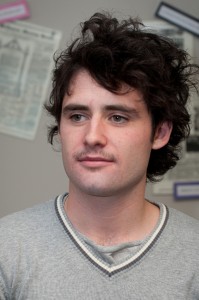When the FFA announced on 28 August 2008 that a new A-League side would be based in the booming Gold Coast region, it seemed like an astute move. Billionaire mining magnate Clive Palmer – Director and Owner of Minerology – was named as the club’s owner and chief financial backer. And the new club was established – in what seemed to be – just in time for football to get its foot in the door; as the NRL had already established the Gold Coast Titans, and the AFL were plotting what would become the Gold Coast Suns.
Yet football in the form of Gold Coast United never seemed to kick off. Crowds were never high and soon became ‘capped’ by Palmer to cut stadium costs. The stellar inaugural playing squad never met their potential, and come last week the FFA revoked the club’s license during just their third season.
The decision came from FFA Chairman Frank Lowy, who stated that the club had made three breaches of the club participation agreement, which included ‘repeated public statements that bring A-League and FFA and game of football into disrepute and are prejudicial to A-League, FFA and game of football in Australia’.
Palmer publicly and unashamedly stated: ‘The A-League’s a joke. I don’t think I’ll ever talk to Ben (Buckley – CEO of the FFA) again in my life, to be honest’. This infuriated the FFA, who publically slammed Palmer. ‘The comments emanating from the Gold Coast are more illogical and more confusing and even more damaging for our game,’ said Lowy.
The club then printed ‘Freedom of Speech’ on the front of their match-day jerseys when they hosted Melbourne Victory on 25 February, which was seen by the FFA as a direct breach of the club code of conduct.
The ‘Freedom of Speech’, according to Gold Coast United, was in support of refugees to the country, as two of the club’s players themselves came to Australia as refugees. Yet the FFA, believe the slogan to be in direct reference to the public spat between Palmer and the FFA, after the former had heavily criticised the way the league was being run.
After losing his A-League license, Palmer has decided to create a ‘rebel’ league and governing body, ‘Football Australia’. Palmer announced last week that former A-League boss Archie Fraser will be the CEO of this new league, and that ‘Frank Lowy is an institution who now belongs in an institution’.
Lowy himself recently described the Gold Coast, as both a club and an expansion, as a ‘spectacular failure’ that greatly fell short of connecting ‘with the local community’.
While most of everything that is ‘Clive Palmer’ – the ego, the statements and claims, the crowd caps and the less than amazing football team – will not be sorely missed, not all of his points are completely ludicrous.
When Archie Fraser quit as head of the A-League, after less than a year in charge, the alleged incessant micro-management and over-involvement from the FFA as his main reason of resignation.
The Barclay’s Premier League is itself governed and run separately from the English FA. While the FA provides match referees, disciplinary measures and the national team setup, by and large they are made to keep out of the everyday business of the Premier League. And in turn, the League is run to be arguably the world’s best.
While Palmer’s ‘Football Australia’ is unlikely to reach the status of the Premier League, he has raised the profile of the possible necessity of the league being spaced apart from the national governing body – which Australia has not.
Yes, the FFA financially supports a number of A-League clubs and the league is still in its infancy, but the idea of the league being run aside from the FFA is something that ideally the A-League should strive for.
CEOs and chairmen like Palmer do invest millions of their own money to support the growth of the game. Although blatantly criticising the way the competition is run is wrong, these kinds of investors should have an element of freedom of expression about how their money is being spent. In any major business, the chief shareholders have a say in how the company is being run and governed; and in many ways, football itself is a business.
Yet when the investor demanding that his opinions are being heard, is the same man who claimed to ‘not even like’ the ‘hopeless’ game of football, the governing body does have the right to step in and hand down sanctions. ‘The club [Gold Coast United] is a very small, insignificant portion of what I do,’ he continued.
How the next few weeks unfold for ‘Football Australia’ and Clive Palmer is uncertain; but nonetheless Palmer has refused to go down without a fight, and caused a massive stir within Australian club football, of which may very well be permanently changed.
 Shane Palmer is a third-year Bachelor of Journalism student at La Trobe University, and is part of the upstart editorial team. You can follow him on Twitter: @SDPalmer12.
Shane Palmer is a third-year Bachelor of Journalism student at La Trobe University, and is part of the upstart editorial team. You can follow him on Twitter: @SDPalmer12.






